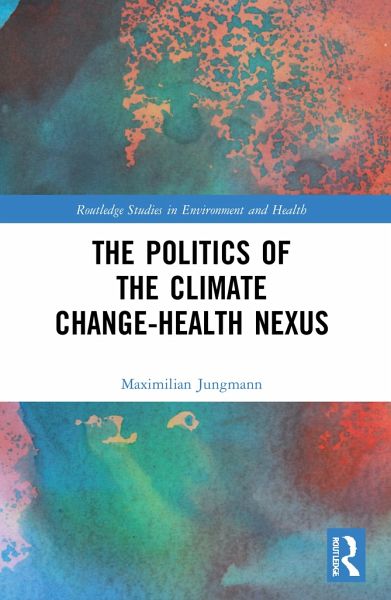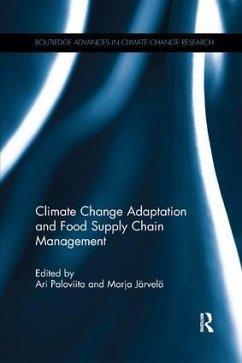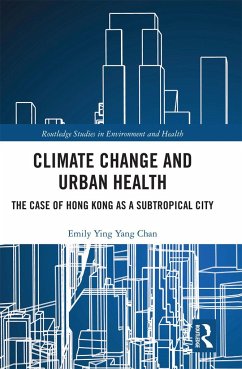
The Politics of the Climate Change-Health Nexus
Versandkostenfrei!
Sofort lieferbar
43,99 €
inkl. MwSt.
Weitere Ausgaben:

PAYBACK Punkte
22 °P sammeln!
This book compares how governments in 192 countries perceive climate change related health risks and which measures they undertake to protect their populations.Building on case studies from the United Kingdom, Ireland, South Korea, Japan and Sri Lanka, The Politics of the Climate Change-Health Nexus demonstrates the strong influence of epistemic communities and international organisations on decision making in the field of climate change and health. Jungmann shows that due to the complexity and uncertainty of climate change related health risks, governments depend on the expertise of universit...
This book compares how governments in 192 countries perceive climate change related health risks and which measures they undertake to protect their populations.
Building on case studies from the United Kingdom, Ireland, South Korea, Japan and Sri Lanka, The Politics of the Climate Change-Health Nexus demonstrates the strong influence of epistemic communities and international organisations on decision making in the field of climate change and health. Jungmann shows that due to the complexity and uncertainty of climate change related health risks, governments depend on the expertise of universities, think tanks, international organisations and researchers within the public sector to understand, strategize and implement effective health adaptation measures. Due to their general openness towards new ideas and academic freedom, the book shows that more democratic states tend to demonstrate a higher recognition of the need to protect their populations. However, the level of success largely depends on the strength of their epistemic communities and the involvement of international organisations.
This volume will be of great interest to students and scholars of climate change and public health. It will also be a valuable resource for policymakers from around the world to learn from best practices and thus improve the health adaptation work in their own countries.
Building on case studies from the United Kingdom, Ireland, South Korea, Japan and Sri Lanka, The Politics of the Climate Change-Health Nexus demonstrates the strong influence of epistemic communities and international organisations on decision making in the field of climate change and health. Jungmann shows that due to the complexity and uncertainty of climate change related health risks, governments depend on the expertise of universities, think tanks, international organisations and researchers within the public sector to understand, strategize and implement effective health adaptation measures. Due to their general openness towards new ideas and academic freedom, the book shows that more democratic states tend to demonstrate a higher recognition of the need to protect their populations. However, the level of success largely depends on the strength of their epistemic communities and the involvement of international organisations.
This volume will be of great interest to students and scholars of climate change and public health. It will also be a valuable resource for policymakers from around the world to learn from best practices and thus improve the health adaptation work in their own countries.














